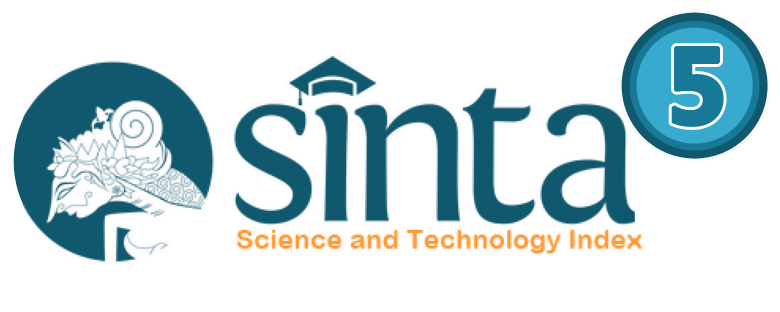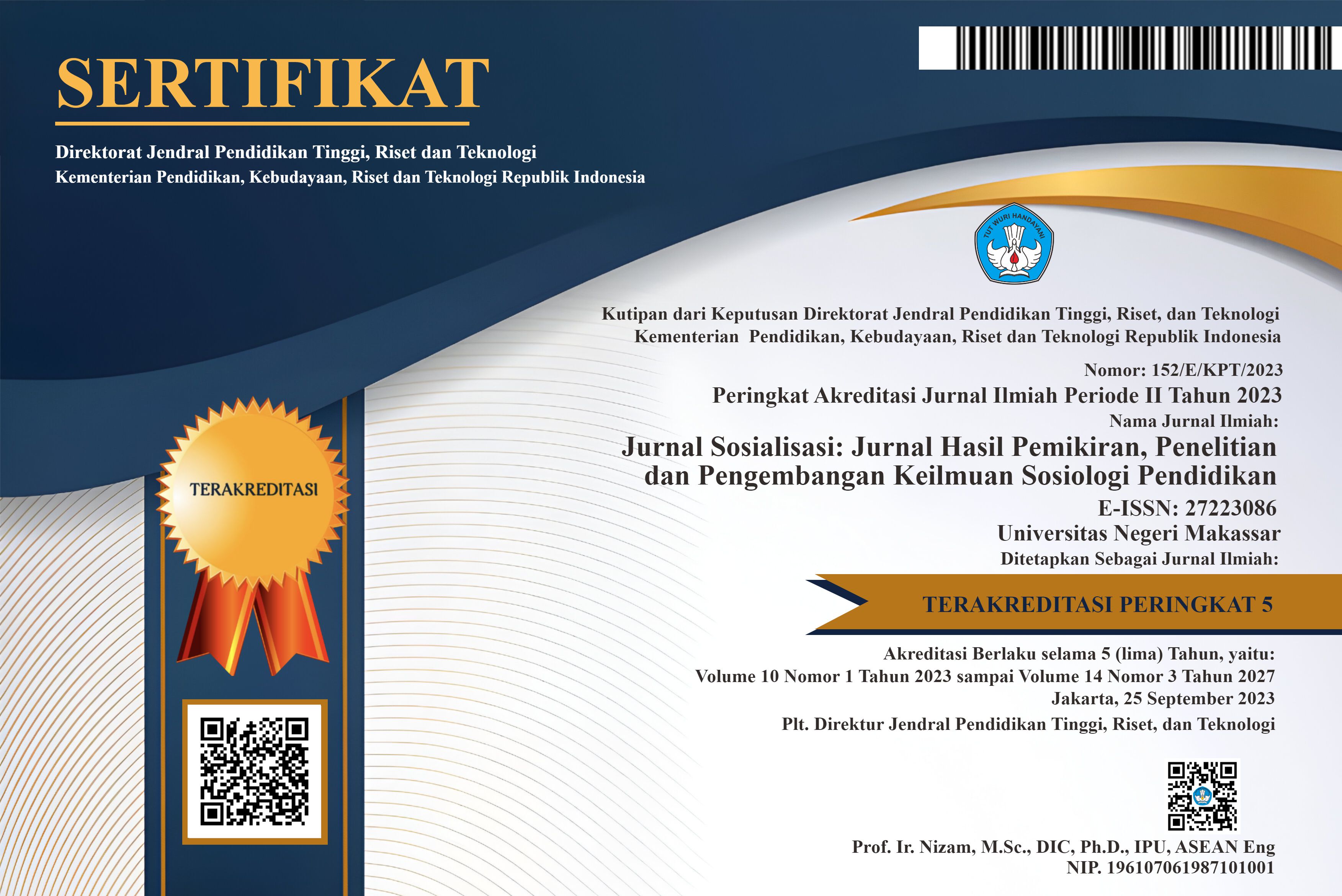Causes and effects of poverty and labour exploitation in Igedeland, Benue State, Nigeria
(1) University Makurdi
(2) Federal College of Education Odugbo
(3)
(*) Corresponding Author
DOI: https://doi.org/10.26858/sosialisasi.v1i1.60986
Abstract
Poverty is one of the major problems against development in Nigeria as in most developing countries; this has been the remote cause of almost all the social ills in the country. Poverty and labour exploitation among the Igede people of Benue State is an analysis of the causes and effects of labour exploitation and the ways of mitigating poverty and labour exploitation among the Igede people of Benue State. This study is both expository and descriptive. A sample of 440 respondents from the two Local Governments of Oju and Obi formed the sample of the study. It adopts the Labour Theory of Value by Karl Marx. The paper found out that poverty significantly influences labour exploitation; the causes of poverty and labour exploitation among the Igede people are illiteracy, marginalization, absence of social amenities, corruption, inferiority complex and unemployment. The effects include migration, economic dependence, high death rate, depression and vulnerability. The ways of mitigating poverty and labour exploitation among the Igede people of Benue State are good governance, wealth creation, employment opportunities and improvement in illiteracy level.
Keywords
Full Text:
PDFReferences
Aigbokhan, B. E. (2000). Poverty, Growth, and Inequality in Nigeria: A case study (Vol. 102). Citeseer.
Akpehe, G. A., Akor, D. N., Mase, J. A., & Igbudu, J. T. (2020). Communal Violence and the Health Security of Rural Women in Benue State–Nigeria. International Journal of Social Sciences and Humanities Innovation.
Block, M. Á. G., Morales, H. R., Hurtado, L. C., Balandrán, A., Méndez, E., & Organization, W. H. (2020). Mexico: health system review.
Chaturvedi, S., Janus, H., Klingebiel, S., Li, X., Mello e Souza, A. de, Sidiropoulos, E., & Wehrmann, D. (2021). Development cooperation in the context of contested global governance. The Palgrave Handbook of Development Cooperation for Achieving the 2030 Agenda: Contested Collaboration, 1–21.
Deji, A. M., Gimba, I. I., & Philip, U. A. (n.d.). The Dialectics of Poverty as a Clog in the Wheel of Development in Oju Local Government Area, 1976-2016.
Edoh, T. (2003). Poverty and the Survival of Democracy in Nigeria. Nigerian Journal of Political and Administrative Studies, 1(4), 2003.
Ekanem, E. A. (2022). Resource Scarcity and Fulani Herdsmen/Tiv Farmers’ Crisis in Benue State, Nigeria. European Journal of Conflict Management, 3(1), 1–18.
Falola, T., & Oyeniyi, B. A. (2015). Nigeria. Bloomsbury Publishing USA.
Harvey, D. (2007). In what ways is’ the new imperialism’really new? Historical Materialism, 15(3), 57–70.
Odey, M. (2020). Understanding Igede Indigenous Knowledge Systems and the Future of Igede Cultural Heritage in Benue State, Nigeria. Indigenous Knowledge Systems and Development in Africa, 261–277.
Ogbaji, J. O., & Onah, O. P. (2022). Salt Processing In Igede-Yala Pre-Colonial Economic Relations. Lapai Journal of Humanities, 13(1), 1–8.
Oyekunle, O. I. (2020). Addressing Youth Unemployment and Poverty through Social Investment Programme in Nigeria (A Case Study of Nigeria’s Social Investment Programme). University of Agder.
Ravallion, M., & Bidani, B. (1994). How robust is a poverty profile? The World Bank Economic Review, 8(1), 75–102.
Saifulahi-Idris, G., Ayodele, J. O., & Ikuteyijo, L. O. (2021). African Journal of Humanities and Social Sciences.
Tsuwa, J. T., & Adorowa, J. N. (2023). Communal Conflict and the Challenges of Development in Benue State: The Bonta-Okpute-Aino Experience. Kashere Journal of Politics and International Relations, 1(1).
Article Metrics
Abstract view : 14 times | PDF view : 3 timesRefbacks
- There are currently no refbacks.

This work is licensed under a Creative Commons Attribution 4.0 International License.


































